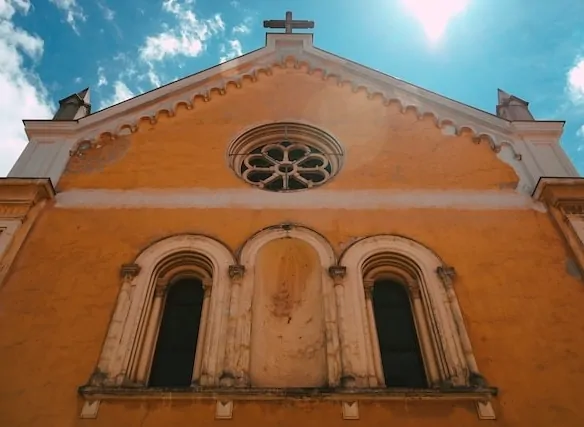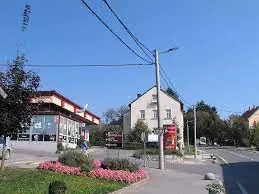8 KEY QUESTIONS TO ASK BEFORE BUYING A LAND IN CROATIA: Building a custom house with all the features tailored to you is certainly a goal everyone thought about at least once. New houses always meet current building codes, can often be more energy-efficient, and offer many other possibilities.

Before jumping straight away, there are a lot of steps to take before getting to the final stage of building a home (*many consider a long planning snd execution process of the home building a downside, which why there are always debates about whether building your own house or buying already built one). The first step, of course, is finding the right land. It’s fair to point out that the whole process of building a house may sound easy, but it’s far from that.
Of course, that doesn’t mean it should automatically be perceived as a nightmare if the process is long. To prevent the possibility of the process becoming a nightmare instead of a dream, you must be very careful. When searching for the right land you have to start by asking the right questions before signing any contract. This will help you prioritize your goals and eventually avoid situations filled with problems.
1. Is the land buildable?
The meaning of the term „buildable” here refers to the characteristics of the land itself. Let’s say you are searching online for land near the sea (for the future vacation house). On images, the land might look perfect, but what if the slopping is higher than you expected or the acreage is not sufficient for your building plans?
What you want to look for here are completed studies about the land and ideally permits that show that you can actually develop a house. The point of this is to make sure that preparing the land for development won’t cost more than the actual house building process itself.
2. Are there long-term plans for the surrounding area?
Let’s imagine that you bought a peaceful land in Rural Croatia to build a vacation home where you will be able to enjoy privacy, just to find out months later that next to you will rise a new tourist resort.
If you already eyed land for your future house, always try to contact the planning office and ask them are there any long-term projects nearby, or are there any talks about future projects. Of course, if you are a foreign citizen with an interest to develop a house in Croatia, you should always consult with a real estate agency (if you hired one). If you don’t have any kindly contact us by visiting our website Plitvice Property Croatia.com. We specialize on foreigners looking to buy real estate in Croatia.
3. What are the zoning regulations?
If there are no future projects in the area of land you wanted to buy, the next step is to check the zoning regulations. Zoning regulations tell you whether the land is designated for residential, commercial, or industrial use. When you learn more about them, you will be able to know – what exactly will you be able to do with your preferred land plot (in this example, if you are looking to build a house, the land plot should be meant for residential use).
If you haven’t reached the real estate agency you will work with yet, or the location of the land is not close to you, try to find images of the land. That way you can see what type of buildings are around are there industrial or residential buildings. This will give you a small hint of what the entire area is designated for.
Three architects discussing over a blueprint.
Consult with a real estate agency or a planning office for future plans in your preferred neigbourhood.
4. Is the land easily accessible?
There are two most common ways to access most lands, via a frontage road, or by using deeded access. A frontage road is simply a local road that provides access to a property, either directly or via a private road.
Deeded access, on the other hand, requires a partnership between neighbors, with the neighbor who has access to a frontage road, enabling a right of way easement across their plot. If your plot is effectively landlocked, you’ll need to discuss access options with your neighbor, and ensure you can come to a reasonable agreement.
5. Does the land have utility connections
This is the question you should take very seriously. If prepared right, you will be able to save yourself from many surprise costs.
In Croatia, many land plots do have decent sewage systems (or septic tanks), water connections, electricity, and wi-fi availability. You should be more aware of land which, at the first sight has everything you ever wanted, but there are no roads that lead to it, no utilities.
In that case, having independent utilities like generators, septic tanks, etc is the only option, but the questions are will those be in your budget, and is having independent utilities a good long-term option for you? Think about the soil percolation test also. This test will help you determine whether your land can safely absorb the water from the system.
6. Are the land boundaries clear?
Putting a simple fence or planting a tree in a part of the land that is not yours can cause you massive headaches and additional expenses too, so make sure to find out exactly where the land plot begins and where it ends.
7. Are there legal issues with the land?
There are still some properties in Croatia that may have legal problems – mostly connected to ownership and building permits. Although these problems are gradually being solved with the changes in the law, there are still pitfalls to watch out for. With the help of your real estate agency or a lawyer, make sure that the land plot is fully vetted before you sign any contract.
8. Can you afford the deposit?
When purchasing a beware of two things. Down payment when purchasing land, and interest rates. Most lenders will require the down payment (it can be 20%, but don’t be surprised if someone requires 50%). If you are ready to buy land be sure that you will have enough cash to buy the land and cover all the development costs that come after.
Thank you for watching and see you soon.





Join The Discussion